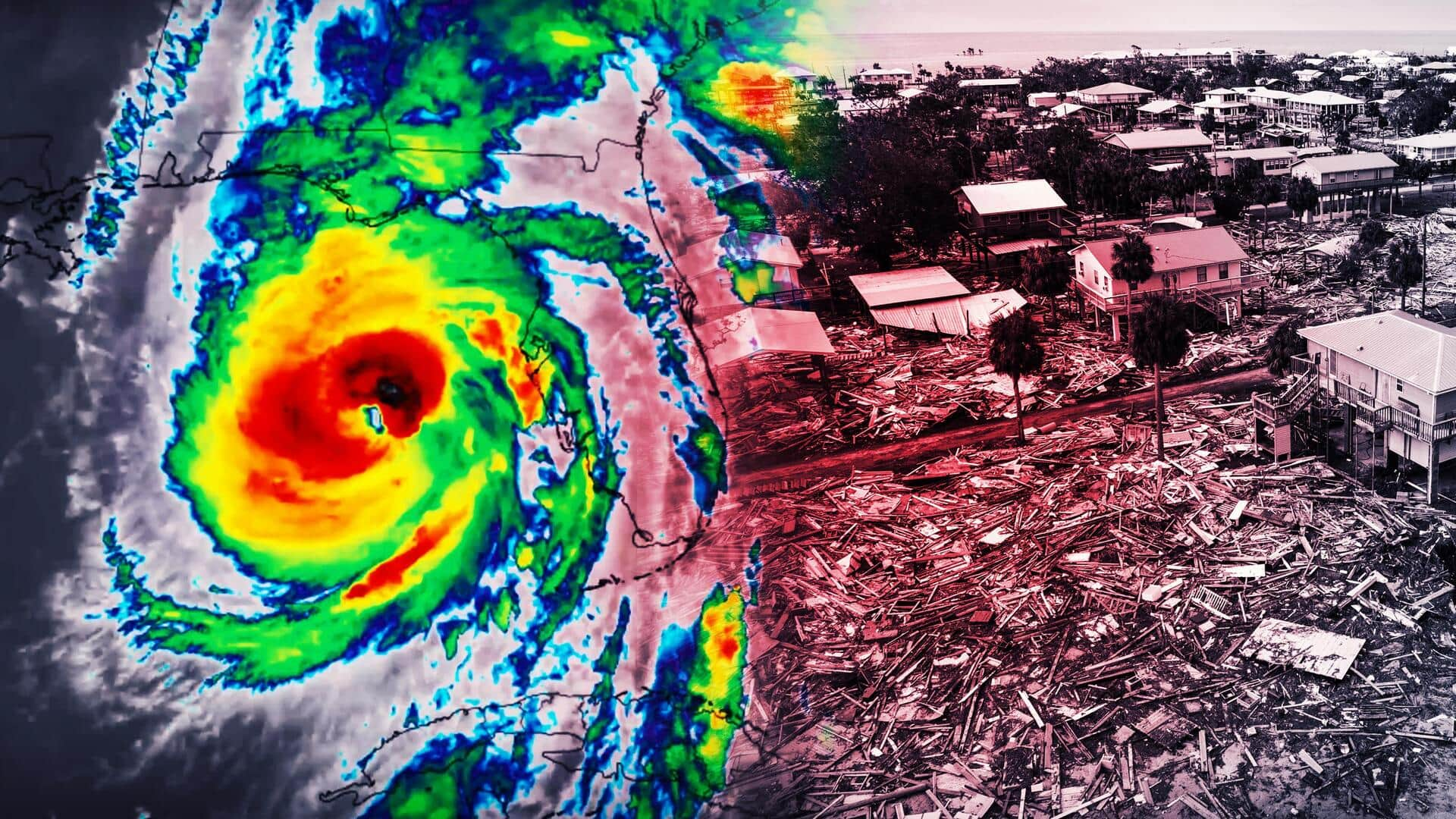
Global warming makes hurricanes like Helene twice as likely: Report
What's the story
A recent study has found that human-induced global heating greatly increased the chances of devastating hurricanes like Helene.
The analysis found that the Gulf's heat, which intensified Hurricane Helene last month, was 200 to 500 times more likely due to climate change.
The deadly storm, one of the worst in US history, picked up strength over an unusually warm Gulf before making landfall with winds of up to 225km/h.
Increased devastation
Climate change intensifies hurricane impacts
The study also noted that climate change intensified Helene's destructive power by increasing its rainfall by 10% and wind intensity by roughly 11%.
The World Weather Attribution group, a multinational team of scientists, said fossil fuel burning has made severe storms like Hurricane Helene about 2.5 times more likely than in the pre-industrial age.
They warned without major emissions cuts, global warming could bring even more rainfall and destruction from such storms.
Oceanic heat
Rising ocean temperatures fuel stronger hurricanes
Bernadette Woods Placky, chief meteorologist at Climate Central, likened the heat humans added to the atmosphere and oceans to "steroids for hurricanes."
She warned storms like Helene and Milton are becoming "explosive" because of this excess heat.
A separate study by Climate Central found the sea surface temperature around Milton's path was 400-800 times more likely due to climate change.
Storm escalation
Rapid intensification of hurricanes alarms scientists
The impending Hurricane Milton, which also strengthened over the Gulf of Mexico, has left scientists alarmed with its rapid intensification from a category one to a category five storm in just nine hours.
Researchers have noted exceptional seawater heat as a ajor contributor in fuelling these hurricanes.
Brian McNoldy, a climate scientist at the University of Miami, said the Gulf's persistently high temperatures could lead to events like Helene and Milton.
Vapor increase
Warmer atmosphere holds more water vapor
Scientists have noted that a warmer atmosphere can hold more water vapor, about 7% per degree of warming. Katharine Hayhoe, chief scientist of the Nature Conservancy and a professor at Texas Tech University, noted that 89% of this heat is absorbed by the ocean.
This leads to rising sea levels, deadly marine heatwaves, and stronger hurricanes.